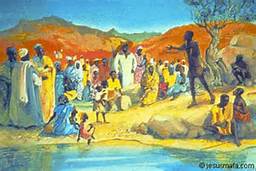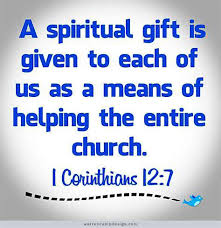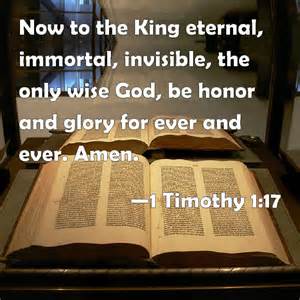“Favor with God!”

Luke 1:26-45 (1:30) – December 3, 2023
Stories are so important! Do you have family stories that you have told around the dining room table, or that your parents told you, about your family history? I have told my children stories about one grandfather who owned a pharmacy and drug store in Chicago through the Depression and afterwards. And, my other grandfather who emigrated from a shtetl in Eastern Europe early in the 1900’s, seeing the Statue of Liberty from the deck of the steamer.
I imagine teenaged Mary, and the stories she was told in her family. Not only family stories about her parents and grandparents, but also stories of the Hebrew people – stories of Abraham and Sarah, of Jacob and his sons, of Moses, Miriam, King David, and especially of Hannah and Samuel. I’d imagine Mary thinking hard about Hannah, pregnant with her child of promise Samuel, and it would be difficult not to compare herself to Hannah!
I am wondering which such stories have shaped you and me, giving us direction and hope, understanding and wisdom in the midst of uncertain times. [1] Which stories – either our family stories or Bible stories – have helped us along, given us positivity and perseverance when we get discouraged or upset?
Mary must have been a thoughtful teenager, possibly even mature beyond her years, when the angel Gabriel suddenly appeared to her! The angel greeted Mary with the typical words most recorded in Scripture when an angel makes a visitation: “Don’t be afraid!” Lo and behold, Mary enters into conversation with this heavenly visitor.
Would you and I have been as thoughtful, or as quick on our feet if we were suddenly confronted with an angel? Even if the angel immediately said, “Don’t be afraid!?”
Mary must have had some idea of what she was up against, both in her culture and in her traditional society structure. Here she was, a young, unmarried teenager – yes, of marriageable age, but not married yet. And, she willingly took on the task of bearing a child, the Son of God as the angel said. “You have found favor with God. 31 You will conceive and give birth to a son, and you are to call him Jesus.”
I wonder perhaps if this is why Mary goes to her older cousin Elizabeth in the hill country, because of the societal pressure that was on her in her hometown. I wonder whether Mary was thinking she might receive social judgement from Elizabeth once she gets there? Yet, I also know that cousin Elizabeth had her own experience of being shamed and excluded. “In her culture a woman’s primary purpose in life was to bear children, so as an elderly infertile wife she had endured a lifetime of being treated as a failure. Her response to her miraculous pregnancy emphasizes that God’s grace has reversed her social status.” [2]
Just think about it! Both Mary and Elizabeth were in a position of social stigma and even dishonor. Yet, Elizabeth said “This is what the Lord has done for me when he looked favorably on me and took away the disgrace I have endured among my people” (Luke 1:25). Further, by greeting Mary with joy and with honor, the pregnant Elizabeth firmly overturns society’s frowns and shames and clucking of tongues.
There’s a whole lot in front of Mary and Elizabeth that they do not know. “They do not know why they have been chosen for these roles. They don’t know who their babies will become, though they have some hints. They don’t know how their children will change the world or how the world will change their children.” [3]
What about today, with migrants, immigrants, or people displaced from war-torn areas or as a result of natural disasters? People are outside of their society’s rules or their cultural expectations, and are regularly in precarious situations. Old people, seniors far from families who need assistance – even a wheelchair – and nothing is available. Children who go hungry because their displaced parents are unable to work because of their host country’s rules.
Pregnant women sometimes are stigmatized by their society, shame, and cultural dishonor. So like Mary and Elizabeth. Do any of these stories resonate inside of you? Which of these ancient stories passed on – even as they were to Mary – do you hold especially close to your heart, especially in December, in this season of Advent? Do one or two of these Biblical stories carry you in dark or uncertain times, and give you encouragement and comfort? [4] Either the story of Hannah and Samuel, or of Mary and Elizabeth? Or another Biblical story?
Sometimes, there are competing stories of hopelessness, or discouragement, or dishonor that come to people’s minds. I would like to tell you that those competing, pessimistic stories are not helpful to our hearts or minds! These stories are not positive or uplifting, and please, please do not let yourselves get bogged down listening to them, internalizing them!
This story of Mary and Elizabeth shows us the positive, nurturing attitude of God reaching down to the least and the lowly. We can be open to the ways that God chooses to act in our world, both two thousand years ago, and today, too! “What is God doing through unexpected people in our society today? Where is God at work through people whom our neighbors and fellow church members often exclude or treat as shameful? Will we listen to the Spirit’s prompting when the bearers of God’s new reality show up on our doorstep?” [5]
I invite us all to consider these positive, miraculous stories and invite the Lord to come alongside of us as we travel through Advent. And perhaps, these stories will help us all to make the world a different place, a more Godly place, where God overrules society’s structure, shame and cultural disapproval! A place where God has arms open wide to all children, all people.
Maranatha, come, Lord Jesus!
(Suggestion: visit me at my other blogs: matterofprayer: A Year of Everyday Prayers. #PursuePEACE – and A Year of Being Kind . Thanks!
(I would like to express my great appreciation for the observations and commentary from the Do Not Be Afraid Advent Devotional – © 2022 Illustrated Ministry, LLC.. I used several quotes and ideas from their useful resources. Thanks so much!)
[1] https://dancingwiththeword.com/mary-and-hannah-and-a-woman-in-the-county-jail/
[2] https://www.workingpreacher.org/commentaries/revised-common-lectionary/fourth-sunday-of-advent-3/commentary-on-luke-139-45-46-55-3
[3] Do Not Be Afraid Advent Devotional – © 2022 Illustrated Ministry, LLC.
[4] https://dancingwiththeword.com/mary-and-hannah-and-a-woman-in-the-county-jail/
[5] https://www.workingpreacher.org/commentaries/revised-common-lectionary/fourth-sunday-of-advent-3/commentary-on-luke-139-45-46-55-3






